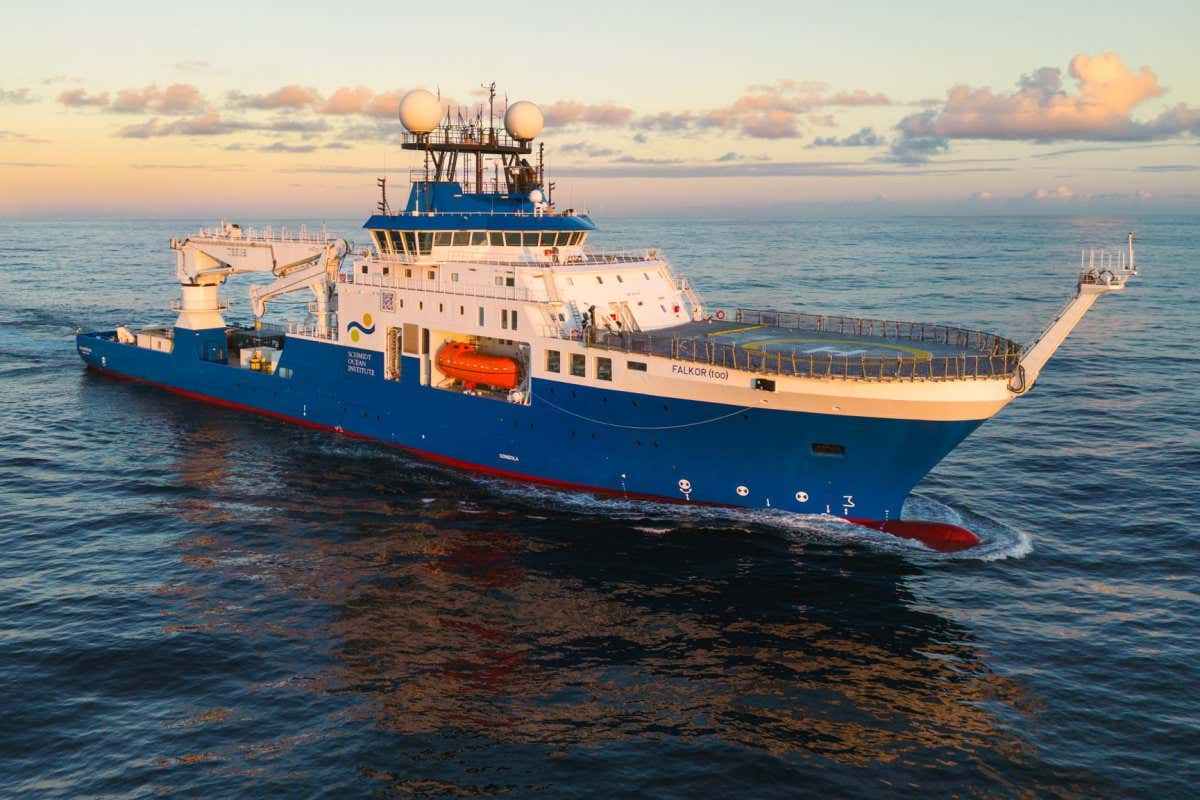Hydrothermal Vents: Advanced Ship Seeks Alien Life
A Deep Dive into the Hunt for Extraterrestrial Life in the Ocean Depths
The search for extraterrestrial life has captivated humanity for centuries. While we gaze at the stars, hoping to detect signals from distant civilizations, a more immediate and intriguing frontier exists right here on Earth: the deep ocean. Specifically, hydrothermal vents, these otherworldly ecosystems teeming with unique life forms, are becoming a focal point in the search for alien life, and a new, technologically advanced ship is leading the charge.
This isn't science fiction. Scientists believe that hydrothermal vents, with their unique chemical environments, could harbor life forms drastically different from anything we've encountered on the surface. These underwater hot springs, found along mid-ocean ridges, spew superheated, mineral-rich water, creating a vibrant ecosystem that thrives in the absence of sunlight. Instead of photosynthesis, chemosynthesis—the process of creating energy from chemicals—fuels this bizarre and fascinating underwater world.
The Voyage of the Nautilus: A New Era in Deep-Sea Exploration
Leading this exciting new chapter in deep-sea exploration is the Nautilus, an advanced research vessel equipped with cutting-edge technology. This isn't your grandfather's research ship. The Nautilus boasts:
- Remotely Operated Vehicles (ROVs): These robotic submarines allow scientists to explore the deepest and most treacherous parts of the ocean floor, capturing high-definition video and collecting samples without putting human lives at risk.
- Advanced Sonar Systems: Sophisticated sonar technology enables the Nautilus to map the seafloor with unprecedented detail, identifying potential hydrothermal vent sites and other areas of scientific interest.
- State-of-the-Art Laboratories: Onboard laboratories allow scientists to conduct immediate analysis of samples collected from the vents, speeding up the research process and maximizing the scientific yield of each expedition.
These technological advancements are crucial in the search for life in extreme environments. The pressure, temperature, and chemical conditions at hydrothermal vents are far removed from those on Earth's surface, making traditional exploration methods inadequate.
What Makes Hydrothermal Vents Such Promising Habitats for Alien Life?
The conditions at hydrothermal vents mirror those believed to exist on other celestial bodies, such as Europa (Jupiter's moon) and Enceladus (Saturn's moon), which are thought to possess subsurface oceans. The presence of chemosynthetic life forms at these vents suggests that life could potentially exist in similar environments beyond Earth. Specifically:
- Energy Source Independence from Sunlight: Chemosynthesis eliminates the need for sunlight, opening up the possibility of life in places completely devoid of it.
- Extreme Environments: The tolerance of organisms at hydrothermal vents to extreme temperatures, pressures, and chemical compositions hints at the adaptability of life to conditions previously considered uninhabitable.
- Early Earth Analogies: Hydrothermal vents are considered by many scientists to be similar to the environments where life may have first emerged on Earth billions of years ago. Studying them provides valuable insights into the origins of life itself.
The Search Continues: Hope for Discovery
The Nautilus’s expeditions are not just about finding alien life; they're also about understanding the resilience and adaptability of life in extreme environments. The discoveries made during these voyages could revolutionize our understanding of biology, geology, and even the possibilities of life beyond Earth. Further research into hydrothermal vents is crucial not only for the search for extraterrestrial life but also for understanding the delicate balance of our own planet's ecosystems.
Stay tuned for updates on the Nautilus's groundbreaking explorations and the potential for discovering alien life right here on Earth! Follow our blog for more news and insights into this fascinating field. [Link to your blog here]

